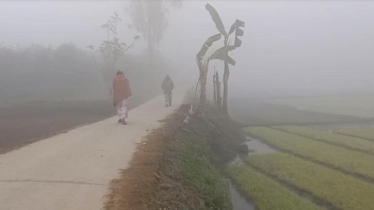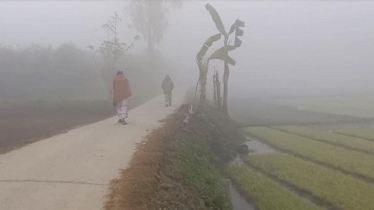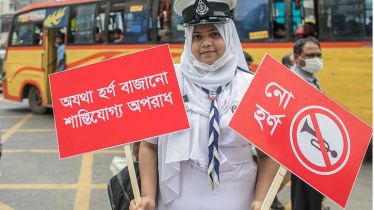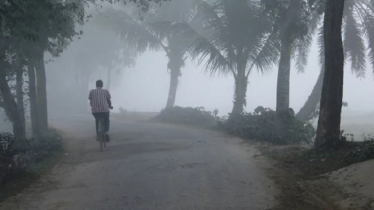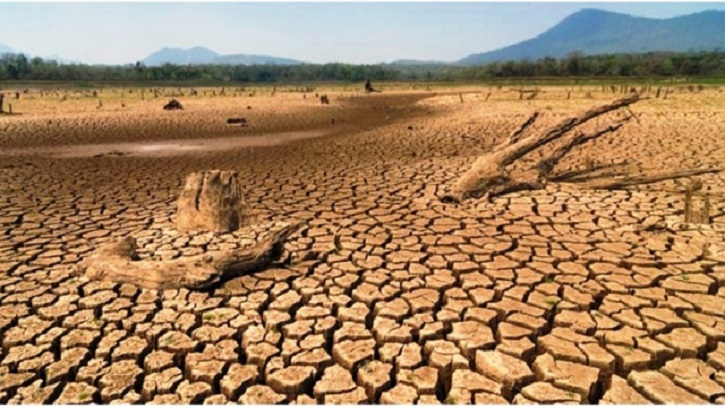
A new World Bank assessment has issued a stark reminder of the climate crisis rapidly advancing toward Bangladesh. The report warns that if current trends continue, Bangladesh’s position as the most climate-vulnerable country in South Asia will become even more precarious within the next five years. With its dense population, intensifying heat, and geographical exposure, South Asia is already among the world’s most climate-sensitive regions, and Bangladesh stands at the forefront of that risk.
According to the report, nearly 90 percent of people across South Asia, including Bangladesh, will be exposed to extreme heat waves by 2030. During the same period, about one-fourth of the population will face severe flood threats. Coastal areas are experiencing escalating salinity intrusion that is altering water, soil, and crops, severely impacting the livelihoods and health of millions of people.
The findings were outlined in the World Bank’s publication, “From Risk to Resilience: Supporting People and Institutions in South Asia’s Climate Adaptation,” released Monday by its Dhaka office. The report notes that the burden of climate adaptation is falling disproportionately on households and firms. Awareness of the growing risks is high—over three-quarters of families and businesses fear significant weather shocks in the next decade. Around 63 percent of firms and 80 percent of households have already taken adaptation steps, though most rely on basic, low-cost measures rather than advanced technologies or public infrastructure.
A survey across 250 coastal villages in Bangladesh found that climate-resilient infrastructure remains the most critical unmet need for coping with rapidly shifting climate conditions. The consequences extend beyond environmental damage, disproportionately affecting poor and agriculture-dependent families. Public investments such as embankments, cyclone shelters, and warning systems have saved lives and reduced losses, but the report emphasizes that the scale of the current crisis far exceeds what governments alone can manage. With fiscal constraints already squeezing South Asian countries, private-sector involvement is essential to accelerate climate adaptation.
Jean Pesme, World Bank Regional Director for Bangladesh and Bhutan, said Bangladesh’s resilience is being constantly tested by evolving environmental challenges. He noted that while adaptation efforts are widespread, the growing climate risks demand far more decisive action. The country’s future resilience, he said, will rely on strengthened early warning systems, targeted urban interventions, expanded social protection, climate-smart agriculture, and innovations in adaptation finance and risk-mitigation mechanisms.
The report calls for a comprehensive, multi-layered approach to climate adaptation. Strengthening early warning systems and expanding access to formal credit and insurance are labeled as essential. The World Bank estimates that nearly one-third of climate-related losses could be avoided if the private sector is able to redirect resources and investments toward the areas most in need. Despite tight budgets, governments in South Asia can help facilitate this by expanding financing channels, improving transportation and digital networks, and ensuring that social support systems are targeted and flexible. It also urges governments to integrate emerging resilient technologies and public assistance into infrastructure and health systems to protect employment and human capital.
Siddharth Sharma, World Bank Chief Economist and co-author of the report, said Bangladesh’s experience offers critical lessons for climate adaptation across South Asia. While citizens and businesses are already adjusting, the scale and complexity of the crisis require urgent, coordinated action from both government and the private sector. He added that Bangladesh holds a unique opportunity to build long-term resilience if it acts decisively now.
The report highlights that investment in early warning systems and cyclone shelters has significantly reduced fatalities during major storms, illustrating the impact of targeted financing and effective institutions. By strengthening partnerships among government agencies, the private sector, and local communities, Bangladesh can accelerate the adoption of climate-smart solutions that reduce risks while supporting sustainable development.
Responding to the report, Dr. Farhina Ahmed, Secretary of the Ministry of Environment, Forest and Climate Change, said climate-risk management is extremely costly, requiring substantial investment across the energy sector, infrastructure preparedness, and data systems. Bangladesh has already developed several policies for climate adaptation, she said, but implementation remains the biggest challenge. Several pilot programs are underway, but she emphasized that effective adaptation demands coordinated action among all relevant ministries and agencies.


